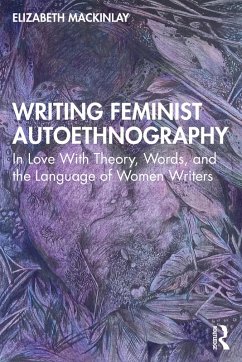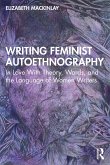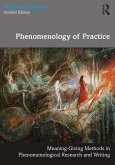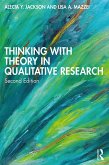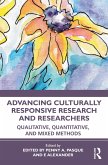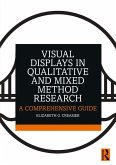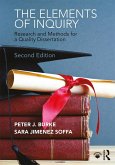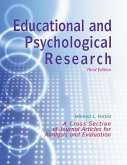Dieser Download kann aus rechtlichen Gründen nur mit Rechnungsadresse in A, B, BG, CY, CZ, D, DK, EW, E, FIN, F, GR, HR, H, IRL, I, LT, L, LR, M, NL, PL, P, R, S, SLO, SK ausgeliefert werden.
Clare Hemmings, London School of Economics and Political Science, UK
"A feminist tour de force. The chapters on Beauvoir and Cixous alone offer the reader a world of writing; an invitation to read, write, and be re-written. Liz Mackinlay's dialogues with a diverse range of women writers is at the forefront of feminist autoethnography, a feminist virtuoso."
Michelle Boulous Walker, The University of Queensland, Australia
"Elizabeth Mackinlay begins her beautiful and evocative book on feminist autoethnography with love -for women's theory, words and language. The compelling epistolary approach that MacKinlay uses to thread these chapters together is its own form of autoethnographic homage. The book thinks with the author's love of women writers and the women in her family and the particular wisdom that has emerged from these nurturing relationships. The book ultimately becomes a kind of meditation on the nature of love itself. It explores the range of kinds of love as co-existing and interdependent, including romantic, passionate love, unconditional, familial love and empathetic, universal love. Mackinlay also acknowledges the hard-to-love as a core part of the human experience. She is intent on addressing non-woman others, narrates hard experiences, and she calls on men to do better. But she needn't worry: this book makes feminist autoethnography accessible and relevant to all through "knowledge grounded in a relationality of love." Finally, this book is a love letter to her readers as well. She invites us to come along and fall in love. And to that invitation, our answer is a resounding 'Yes!'."
Dan Harris, RMIT University, Australia and Stacy Holman Jones, Monash University, Australia
"Writing Feminist Autoethnography is full of love: it's in 'love with theory, words, and the language of women writers'. I love that Mackinlay's text is so full of love; other readers will be swept up in/by it too. They will be carried on this wave of deep, smart, fluent, uncompromising engagement by a writer in love with craft, subject(s), and process. This is autoethnography at its finest: scholarly, lyrical, poetic, critical."
Jonathan Wyatt, University of Edinburgh, UK

